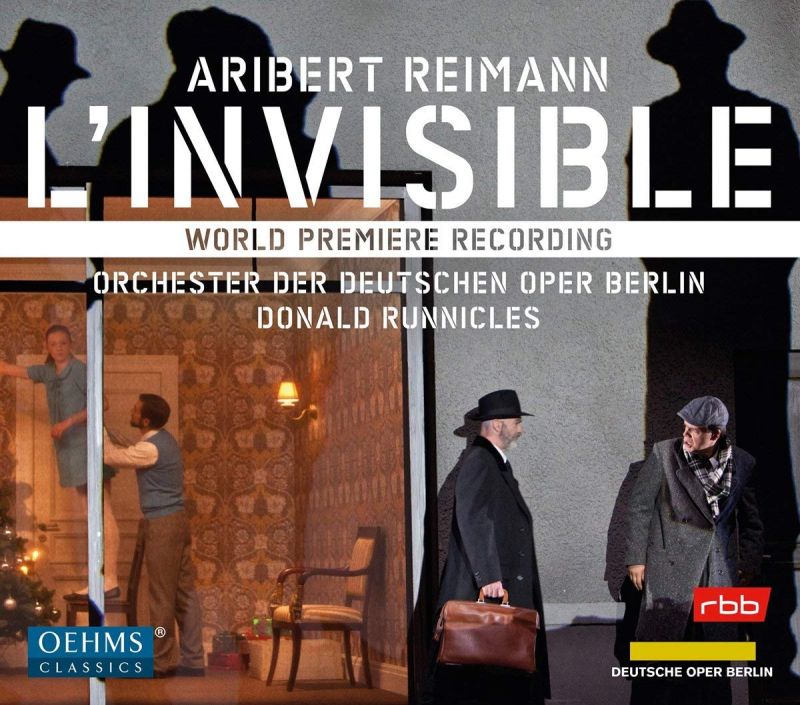REIMANN L'Invisible (Runnicles)
View record and artist detailsRecord and Artist Details
Composer or Director: Aribert Reimann
Genre:
Opera
Label: Oehms
Magazine Review Date: AW18
Media Format: CD or Download
Media Runtime: 0
Mastering:
DDD
Catalogue Number: OC973

Tracks:
| Composition | Artist Credit |
|---|---|
| L'Invisible |
Aribert Reimann, Composer
Annika Schlicht, Marthe; Bellangére, Mezzo soprano Aribert Reimann, Composer Berlin Opera Orchestra Donald Runnicles, Conductor Martin Wolfel, Servant, Countertenor Matthew Shaw, Servant, Countertenor Rachel Harnisch, Ursula; Marie; Ygraine, Soprano Ronnita Miller, Servant, Mezzo soprano Salvador Macedo, Tintagiles, Speaker Seth Carico, Father, Bass-baritone Stephen Bronk, Grandfather, Bass-baritone Thomas Blondelle, Uncle; Stranger, Tenor Tim Severloh, Servant, Countertenor |
Author: Mike Ashman
But it would be unfair to say that our attention, even without visible drama, is not fully held. The voyeurism common to the three scenes of death – a mother post-childbirth, an accident or suicide and a murder – make for compelling whodunnit listening. And, as before, Webern and Berg (and now, perhaps, Debussy in the third part here, ‘La mort de Tintagiles’) nourish Reimann’s melodies and harmonies. Especially noteworthy is his contrasting use of instrumental groups. Strings alone carry the suspicious voyeuristic world of the opening ‘L’Intruse’ (‘The Intruder’), winds only appearing for the second part, ‘Intérieur’, and (more savage) brass later. Similarly, the small ensemble of conventional voices we hear sharing roles in the three parts of the work are varied by the unearthly timbre of a trio of countertenors, who sing interludes with warning hints about the plot. As in Lear, Reimann augments the drama by the pure sound and tessitura of his vocal writing, recalling his special gifts as a Lied accompanist.
The Swiss soprano Rachel Harnisch, a frequent collaborator of Claudio Abbado’s, has a leading role in each part but dominates with the almost heroic Ygraine, Tintagiles’s sister, who tries to keep him from being murdered by the malevolent unseen Queen. She manages to make all the tricky leaps and intervals a full part of the character. Stephen Bronk is also most imaginative in the recitative-like writing of the Grandfather in ‘L’Intruse’. Somewhat like Britten’s Turn of the Screw, there is a continuous and vital red line of drama here of which the performance, clearly well prepared by house music director Donald Runnicles, never lets go.
The recording seems true and serviceable but a DVD to show us Vasily Barkhatov’s important creation of a production would have been invaluable.
Discover the world's largest classical music catalogue with Presto Music.

Gramophone Digital Club
- Digital Edition
- Digital Archive
- Reviews Database
- Full website access
From £8.75 / month
Subscribe
Gramophone Full Club
- Print Edition
- Digital Edition
- Digital Archive
- Reviews Database
- Full website access
From £11.00 / month
Subscribe
If you are a library, university or other organisation that would be interested in an institutional subscription to Gramophone please click here for further information.




